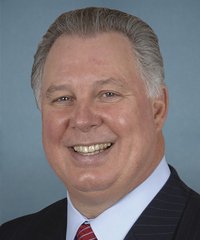
Born in the Cuban town of Bejucal, he grew up in the waning years of pre-Communist Cuba. His family fled in January 1962 with the help of relatives in America. Congressman Sires became a star basketball player at Memorial High School and received a four-year basketball scholarship from St. Peter’s College. He went on to receive a Masters Degree from Middlebury College in Vermont.
Congressman Sires was a teacher and business owner before entering public service. He proudly served as Mayor of West New York, New Jersey from 1995 to 2006. During that time, the Congressman created more affordable housing units than any municipality in the State of New Jersey by fostering public-private partnerships and the use of targeted tax incentives.
Livable communities create safe, healthy places for our children to learn and grow and inspire living practices that are healthy for our citizens, economy, and environment. These communities give families equal access to education, economic, housing and transportation opportunities. To create livable communities, we must invest in local infrastructure projects and strengthen positive relationships between transportation, health, energy, environment, housing and education initiatives.
As a member of the Democratic Caucus’ Livable Communities Task Force, I am able to work with other members of Congress to promote legislation that focuses on creating more livable communities and spurs a healthier environment and economy for our citizens. As a member of the Congressional Urban Caucus, I work with other members who represent the nation’s metropolitan areas to formulate ideas on how best to address the challenges faced by cities.
Additionally, I have led the effort to create an Urban Parks Task Force to focus on how the revitalization of urban parks can improve metropolitan areas by providing healthy alternatives to at-risk youth. I introduced the Community Parks Revitalization Act which would assist communities in developing and maintaining community parks in localities across the country. The legislation would provide grants for communities to rehabilitate existing and develop new community parks and recreational infrastructure. Grants could also be used to maintain parks to keep them vibrant for many years to come.